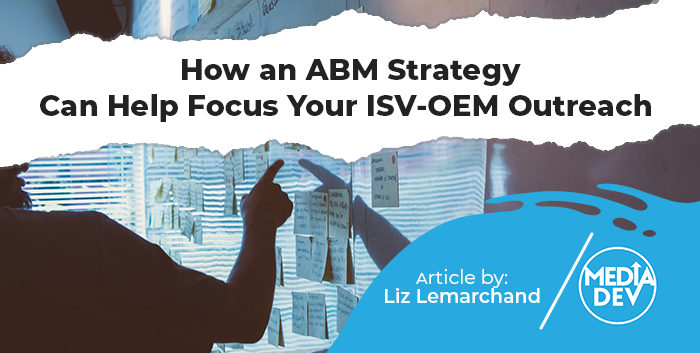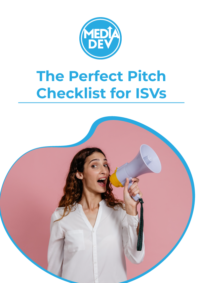A few months back I wrote a blog post called I Blog, You Blog, We all Blog, which mainly describes how blogging has become a non-negligible marketing tool for businesses, and why it’s important to get cracking at creating one if you haven’t already done so. And for months, I’ve been writing and writing, and writing some more (even though I’m still not sure how many people besides my mother actually read all my posts!). I’ve come up with new ideas from conversations with clients, peers and random strangers alike. I’ve been inspired at 4 o’clock in the morning and have had to get up to write down my ideas before I forget them (ok yes, I am a workaholic). And I’m sure for many of you it’s the same process. Until one day it’s not. You hit a wall. You’re not sure what to write about. You try to look at the same topic from another angle, but there’s something amiss and you don’t have the inspiration you had before. So you miss a day, two days, then a week where you don’t post anything new; you contemplate hiring a content writer. You reach out to colleagues and encourage them to contribute — anything not to stop the momentum you’ve got going because you just don’t know what will happen now that you’ve opened Pandora’s box.
And then you contemplate the inevitable — who really cares? Is anyone reading what I’m writing about anyhow? It’s a conundrum and you can’t answer that question, so what do you do?
Here are some of the tips that help me get over writer’s block for blog writing:
Keep writing anyway
You may have writer’s block but so do even the best of writers at some point in time. My father, who was a published writer, told me on many occasions during his life, “I’ve said all there is so say, I’ll never write anything again,” only to have him pick up a pen the next day, jotting down notes on another subject he found interesting. There is always something else to write about, you just need to take the time to see it. So force yourself to keep writing anyway. You can write about the experience of writing or of not being able to write! You can write about how brushing your teeth in the morning got you to thinking about something quirky. The sky is the limit so even when you think you’ve lost all hope, pull out your laptop and get typing regardless.
Read, read and read some more
The best writers are avid readers. At any given period, I’m reading no less than 2 to 3 books at a time (I typically go through 1 book a week and now read exclusively non-fiction), but even if you can’t read that fast (or you prefer romance novels), you should always have at least 1 book that you’re into. Reading for at least 15 minutes a day (and keeping up-to-date on the news by reading the headlines and top stories) is a great way develop your skills as a writer. It may also give you (timely) topics to write about, especially if your business is affected by announcements or current events.
Keep a positive outlook
As the saying goes, “attitude is everything”. If you keep drilling into your head those negative thoughts you’ve probably been thinking when you’ve hit the wall of writer’s block, (that you can’t think of anything good to write about, that you’re not good enough as a writer, that no-one cares what you have to say, or a dozen or so other doubts that could come across your mind in the space of a day), you’ll just find yourself listening to them in the end (and end up producing nothing). If you reverse the cycle and give yourself a positive pep-talk, (that you can do it, that you are good enough, that everyone hits rough patches sometimes), you’ll find that you’ll “get over it” faster. I’m also a big believer in the benefits of power-posing so don’t be afraid to try it (even if you feel stupid doing it at first).
Don’t be afraid to ask for help
I’m also a big believer in having it all without having to do it all yourself. You don’t have to do all the writing all the time, and you can consider hiring freelance copywriters on occasion if it gets to be too much. If you target local markets in EMEA, you may also want to get translations of some of your most interesting content which can become new posts on their own. And when in doubt, talk to your friends and family. They may have ideas, tips, suggestions and/or experience of their own to share with you. Who knows, they may even inspire you to write something new too!
It doesn’t matter if you think no-one’s reading
I know this sounds counter-intuitive (why write when surely no-one will read what I wrote), but keep a couple things in mind:
- More people have access to your content than you think: If you are posting your blogs online (which I’m quite sure you are), you just don’t know who or when people are going to see what you have written. As proof of this, my very first blog post (posted in January 2017) is only now in the top-ten search engine results for keywords related to telemarketing. That means it can take time for your content to get into the right hands (or in front of the right eyes in this case).
- A little promotion can go a long way: Posting on personal and professional social media can get your content seen by people outside of your immediate circle of contacts, so re-posting older blogs (at a reasonable frequency) can help get them seen a second time around by more people than the first. I find that LinkedIn has become somewhat of an advertising dumping ground as of late and things that are posted disappear in the scroll pretty fast. That means you need to get creative if you want things to be noticed — encouraging comments or asking your colleagues to write their opinions can help keep your content visible a bit longer. (Comments may also inspire new posts too, so you never know!)
Keep it light, short and to the point
I know that SEO strategy dictates long posts (in fact I think they say the longer the better, or as a general rule, not less than 1600 words, which if you ask me is a petty long post — this one is only 1229 total) but let’s be practical here: if you’re having trouble writing or experiencing writer’s block, writing anything of any length is better than nothing at all. Personally, I can’t stand the never-ending blog post, the one that’s repetitious in its messaging, or the one that leaves me bored half-way through it (the top 100 tips for anything for example is one I won’t even open); I skim over those pretty quickly and sometimes close them before I’m done (unless they are VERY well written and/or authored by Malcolm Gladwell!). Don’t worry about the length of your post, just post.
And there you have it, so get to it!










